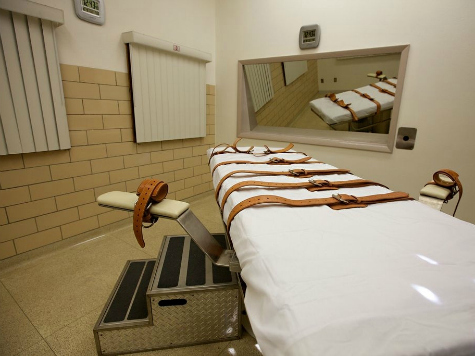
In an unprecedented court ruling, federal judge Cormac Carney in Orange County declared the death penalty to be “unconstitutional” in California, clearing at least one inmate from Death Row and potentially setting a precedent for future cases throughout the nation.
Carney’s ruling has the potential to be appealed to the 9th Circuit Court of Appeals.
The ruling stems from a case titled Jones vs. Chappell in which the petitioner Ernest Dewayne Jones filed a petition against the defendant and Warden Kevin Chappell of San Quentin Prison, a California State Prison which is known for hosting some of the nation’s most notorious inmates. Jones had been sentenced to death on April 7, 1995 but after nearly two decades had yet to see his sentencing be carried out.
Carney’s ruling has in effect overturned Jones’s death sentence.
Judge Carney, in his 29-page ruling on the Jones vs. Chappell case, attributes his decision to the unconstitutionality of the death penalty in his state, equating it essentially to empty promises. He argues in his writing that the “implicit promise from the State” that death will actually be carried out is “an empty one.”
Jones was sentenced to death for the 1992 rape and killings of Julia Miller, his girlfriend’s mother, by a Los Angeles County Superior Court judge, notes the Los Angeles Times. Jones reportedly had committed the crime 10 months after he was paroled for a previous rape.
Since 1978, when the current death penalty system was adopted in California by its voters, Carney notes, “only 13” of the “900 people [who] have been sentenced to death” have actually been executed for their crimes. He goes on to write that “For the rest, the dysfunctional administration of California’s death penalty system has resulted, and will continue to result, in an inordinate and unpredictable period of delay preceding their actual execution.”
Carney also posits that in light of the excessive waiting periods Death Row inmates have been subjected to, the death penalty “violates the Eighth Amendment’s prohibition against cruel and unusual punishment.” He states inmates’ “execution will serve no retributive or deterrent purpose and will be arbitrary.”
He reiterates this sentiment in his closing statement in which he writes that the current, drawn out system which has been afflicted by major delays “has resulted in a system that serves no penological purpose. Such a system is unconstitutional.”
Carney, who is a graduate of Harvard Law School, was appointed by President George W. Bush in 2003, according to Judgepedia. In 2009, Judge Carney presided over the trial of Chinese-born engineer Dongfan “Greg” Chung who became the first person to be convicted under The Economic Espionage Act of 1996; “the law was created to help the government crack down on stolen information from private companies that contract with the federal government,” notes Judgepedia.
Debates over the death penalty have riddled the nation’s judicial system for years. Some suggest a case-by-case analysis is the best option.
In 2005, then Massachusetts Governor Mitt Romney took on the stance of what he deemed to be those “in the middle… who could support the death penalty if it is narrowly applied” and suggested that acts of terrorism be a major determiner as to whether or not execution should be carried out: “The appropriate response of society to terrorism carried out around the world or within the Commonwealth’s borders is to apply the death penalty.”
Barack Obama seemed to take on a similar stance during a 2004 Illinois Senate debate in which he said, “I believe that the death penalty is appropriate in certain circumstances. There are extraordinarily heinous crimes, terrorism, the harm of children, in which it may be appropriate.”

COMMENTS
Please let us know if you're having issues with commenting.